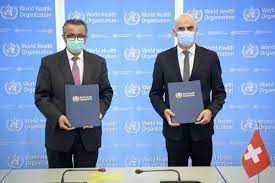In a concerning development, the Republic of the Congo has officially declared an epidemic of mpox after confirming 19 cases across five departments, including the capital city of Brazzaville. Health Minister Gilbert Mokoki made the announcement in a statement released on Tuesday, emphasizing the need for public vigilance and precautionary measures.
As of now, no fatalities have been reported in connection with the outbreak, providing a glimmer of hope amid the growing concern. However, authorities are urging citizens to remain cautious and proactive in their efforts to prevent further spread of the virus.
Minister Mokoki outlined several key precautions that individuals should take to protect themselves and others. These measures include avoiding close contact with suspected cases, refraining from contact with animals, and abstaining from handling game meat without proper protection such as gloves.
In a notable move, the World Health Organization (WHO) has opted to rename the virus from “monkeypox” to “mpox” in an effort to mitigate stigma and racism associated with the previous terminology. This change reflects the organization’s commitment to promoting inclusivity and sensitivity in public health discourse.
Mpox, previously known as monkeypox, was first identified in humans in the neighboring Democratic Republic of Congo in 1970, according to the WHO. The virus presents with symptoms such as fever, body aches, and characteristic skin lesions, making early detection and intervention critical in containing its spread.
This declaration comes against the backdrop of a previous global health emergency declared by the WHO in 2022, when an outbreak of mpox reached Europe and North America. The recurrence of cases in the Republic of the Congo underscores the ongoing threat posed by infectious diseases and the importance of robust public health infrastructure and response mechanisms.
As health officials work tirelessly to contain the outbreak and mitigate its impact on vulnerable communities, the cooperation and compliance of the public are paramount. Heightened awareness, adherence to preventive measures, and swift action will be crucial in stemming the tide of this epidemic and safeguarding the health and well-being of all citizens.











